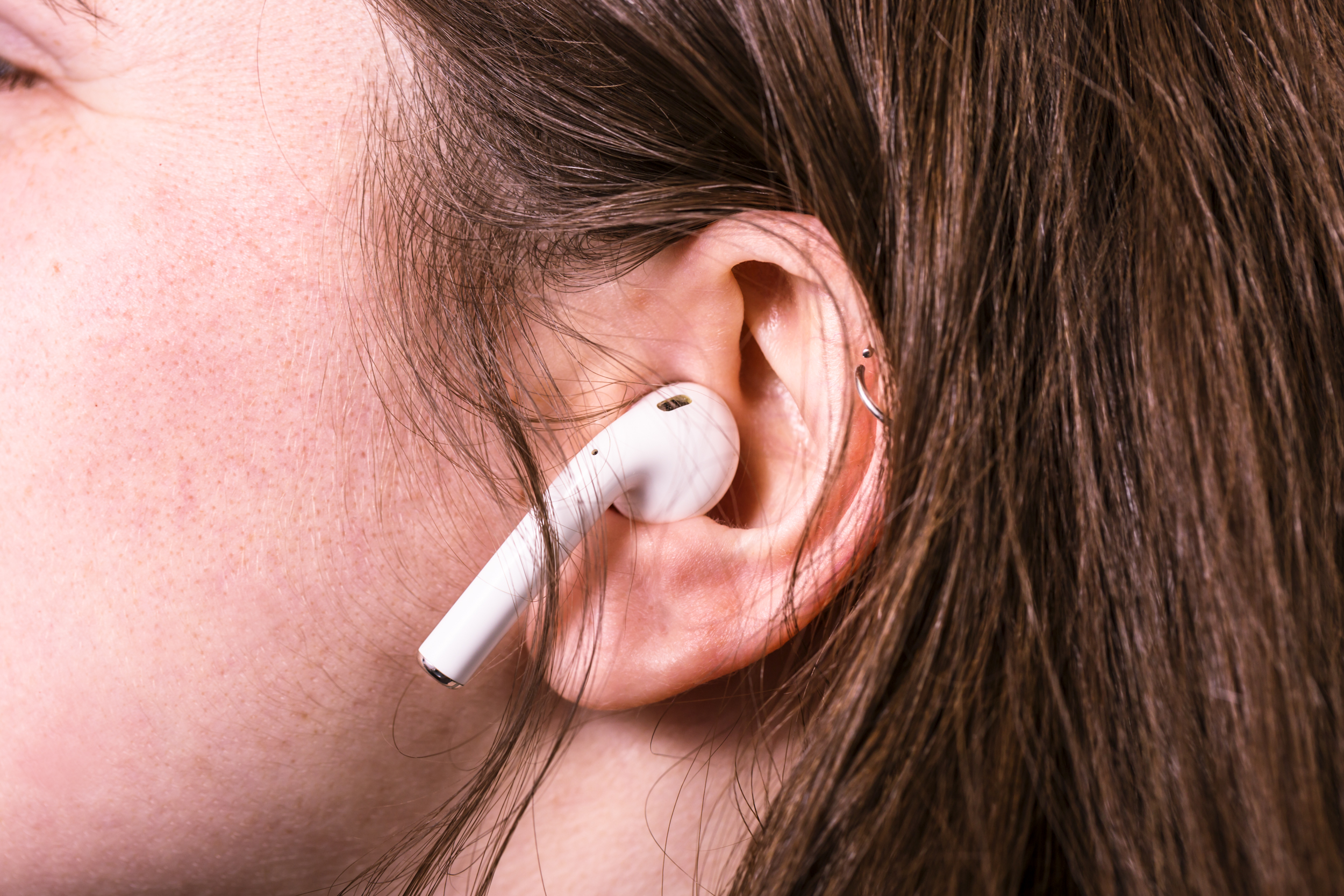- With an optional wireless-charging case, support for “Hey Siri,” and faster performance, Apple’s new AirPods feel even more convenient to use.
- During my time using Apple’s new AirPods, I found that they could connect to different Apple devices almost twice as fast as my old pair.
- However, they feel more like an iterative improvement rather than a whole new product, so current AirPods owners shouldn’t feel too compelled to upgrade.
When Apple debuted its AirPods in 2016 alongside the headphone-jack-less iPhone 7, no one could have predicted just how popular they would become. Even their appearance invited ridicule, with some Twitter users likening the way they protrude from your ears to broken Q-tips or cigarettes.
But more than two years later, AirPods seem to be everywhere. If you live in a city like New York or San Francisco, it’s difficult to go a day without seeing them during your commute. They’ve even served as the inspiration for dozens of memes, further illustrating just how pervasive they’ve become in society.
Though Apple doesn’t break out sales figures for AirPods, the well-connected Apple analyst Ming-Chi Kuo of TF International Securities said in December that their “growth momentum” would be the “fastest among Apple products” and predicted their sales would jump to 50 million to 55 million this year from 26 million to 28 million last year in 2018.
With that level of success, it’s no surprise that Apple is continuing to invest in AirPods. On March 20, Apple released its second-generation AirPods, marking the company’s first update to the product since its launch.
The new model brings a couple of noteworthy changes, including support for "Hey Siri," improved performance that makes switching among devices more seamless, and the option to purchase the earbuds with a wireless-charging-compatible case for $199 (or $159 with the standard case).
These changes feel like a half-step forward for Apple's already great wireless earbuds that make them perform even better. The new features are welcome additions that bring a level of convenience to Apple's AirPods but don't radically change the experience.
I've found that of all the updates Apple made in its second-generation AirPods, "Hey Siri" support is the most useful. With the new AirPods, you can summon Siri by simply saying that phrase, just as you can on your iPhone. That's an improvement from the original model, which required a double tap to grab Siri's attention.
Being able to just say a command like "Hey Siri, set a timer for 15 minutes," or "Hey Siri, what's next on my calendar?" without having to double tap has made the experience feel easier and more fluid, especially if I'm busy cooking or folding laundry. There's just something about having a virtual assistant talk to you directly in your ear that makes using Siri through the AirPods feel more natural than speaking to it through other devices.

That said, I do wish Apple had given Siri some type of audio cue to indicate it's listening. Other devices like the iPhone and Apple Watch have screens that show you when Siri is tuning in, making it easier to know exactly when to recite your request.
If you're the type of person who frequently switches among Apple devices when wearing AirPods, you'll experience a noticeable speed boost with Apple's latest headphones. I found that when I was jumping between my iPhone and iPad while wearing the second-generation AirPods, the headphones synced up with whichever device I was using in two or three seconds, feeling almost instantaneous. That's about twice as fast as my first-generation AirPods, which took about six seconds to switch devices.
Wireless charging is another convenient addition, but I'd recommend spending the extra $40 on the new AirPods with the wireless-charging case only if you already own a wireless-charging mat. Since I already have one resting on my nightstand that I typically use for my iPhone, I loved being able to just drop my AirPods after a workout without having to dig out my Lightning cable. Plus, that case has an indicator light on the outside that lets you see at a glance whether your earbuds are powered up, whereas you have to open the lid of the non-wireless-charging case to see whether they're charged.
If you don't own a wireless-charging pad, it can be a pricey perk. Pads from reputable companies like Mophie, Anker, and Belkin can cost about $45 to $50. Combine that with the extra $40 Apple charges for a pair of new AirPods with the wireless-charging case, and you're spending about $90 to have the convenience of not plugging in your AirPods.
When it comes to audio quality, the new AirPods sounded crystal clear whether I was talking on the phone, listening to music, or watching Netflix. But for the most part, they sounded just as good as Apple's previous-generation AirPods - so if you're considering purchasing them, you should pay more attention to the new features than the audio improvements.
Those shopping for truly wireless headphones - cord-free headphones that aren't connected to each other by a cable - now have more options from veteran audio companies and consumer-electronics makers than ever, especially compared with 2016, when AirPods kick-started the trend.
Some of these even offer features not available on Apple's AirPods. Jabra's $189 Elite Active 65t earbuds, for example, can track fitness metrics, let you adjust how well they filter out the sounds from your surroundings, and are compatible with voice assistants like Siri, Alexa, and the Google Assistant. They also come in red, black, and blue, while the AirPods come in only white.
Samsung also recently announced its answer to AirPods, called the Galaxy Buds, which offer similar features and are water-resistant, unlike Apple's earbuds.
If you're looking for a pair of wireless headphones with more to offer when it comes to fitness-focused features and color options, these options could be worth considering, especially if you don't own an iPhone.

Overall, Apple's second-generation AirPods feel like a modest improvement over the original rather than a whole new product - which is exactly what they should be, given their price.
If you're an iPhone owner looking for a pair of simple, comfortable wireless headphones that work reliably well, Apple's second-generation AirPods won't disappoint. In addition to improvements like hands-free Siri access and faster device switching, they bring the same benefits to Apple device users as their predecessors, such as the ability to automatically pause playback when an AirPod is removed from the ear, and automatic device pairing when the case's lid is opened.
But current owners of AirPods shouldn't feel compelled to upgrade, especially considering that you can purchase the wireless-charging case separately for $79. Reports from Bloomberg and Kuo also indicate Apple is planning to release a pair of redesigned, water-resistant AirPods in 2020, so you may want to hold out until then.

